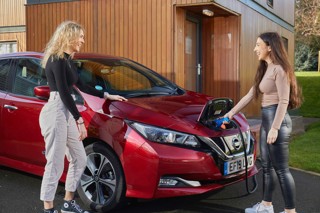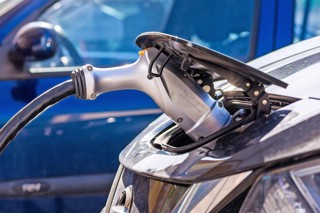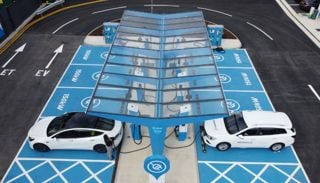Nottingham City Council has adopted bi-directional electric vehicle (EV) charging facilities at its fleet depot that use solar and battery energy storage.
Home to a 200-strong fleet; the depot includes 40 vehicle-to-grid (V2G) bi-directional chargers with three solar arrays and two 300kW E-STOR energy storage systems from Connected Energy.
The energy ecosystem will be a blueprint for how premises across the country facing extreme energy challenges from physical supply restrictions, rural locations or legacy buildings can install EV chargers and increase their energy consumption, while managing their power demands.
The site’s solar arrays with a combined generation of 176kwp will enable the site to create and use its own clean energy which is then stored in the Connected Energy E-STOR systems. An overarching energy management software solution, developed by Hangar19, will communicate across all the technologies, giving the site the flexibility to make the best possible use of its own energy and provide services to the grid.
Connected Energy CEO, Matthew Lumsden, said: “When fleet and estate managers install EV chargers at thousands of premises across the country, many will discover that their energy supply is insufficient. Others are likely to find that EV charging brings unmanageable peak charges. The energy ecosystem for Nottingham City Council overcomes all these challenges and shows a path ahead that others can follow.”
The installation is a key part of the Nottingham’s ambition to become the first carbon-neutral city in the country by 2028, and as a successful marriage between green energy and transport solutions, provides a valuable blueprint which others can follow.
Steve Cornes, principal energy projects officer at Nottingham City Council, said: “As the City Council fleet transitions to electric, including large vehicles such as refuse lorries, we will be using the battery energy storage system to prop up the grid. By using intelligently managed BESS and V2G, on-site solar energy can be maximised and the depot will effectively be able to isolate itself from the grid. The systems will allow us to ensure production costs of electricity will be negligible, allowing us to peak shave so that we can avoid high electricity tariffs and give us the opportunity to trade electricity back to the grid.”























Login to comment
Comments
No comments have been made yet.